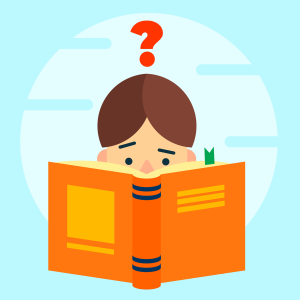What is Information Literacy?

The Association of College and Research Libraries defines information literacy as a “set of integrated abilities encompassing the reflective discovery of information, the understanding of how information is produced and valued and the use of information in creating new knowledge and participating ethically in communities of learning” (“Framework for Information Literacy for Higher Education”).
Sources
“Framework for Information Literacy for Higher Education”, American Library Association, February 9, 2015. http://www.ala.org/acrl/standards/ilframework (Accessed April 19, 2023) and “Kid Study Book royalty-free vector graphic” by DavidRockDesign via Pixabay.
East Central University – Information Literacy Defined © 2021 by Shawna Bishop, Haley Monroe, and Brandi Schur is adapted from The Insiders: Information Literacy for Okies Everywhere, licensed under a Creative Commons Attribution-NonCommercial-ShareAlike 4.0 International License, except where otherwise noted.
An integrated set of skills, practices, and dispositions that prepare students to discover, interpret, and create information ethically while gaining a critical understanding of how information systems interact to produce knowledge. Information literacy aims to help students navigate the information landscape not just for college courses but beyond—in the workplace, in their personal lives, as lifelong learners, and as news consumers, creators, and voters. Definition from “Information Literacy in the Age of Algorithms” by Head, Fister, and MacMillan.

